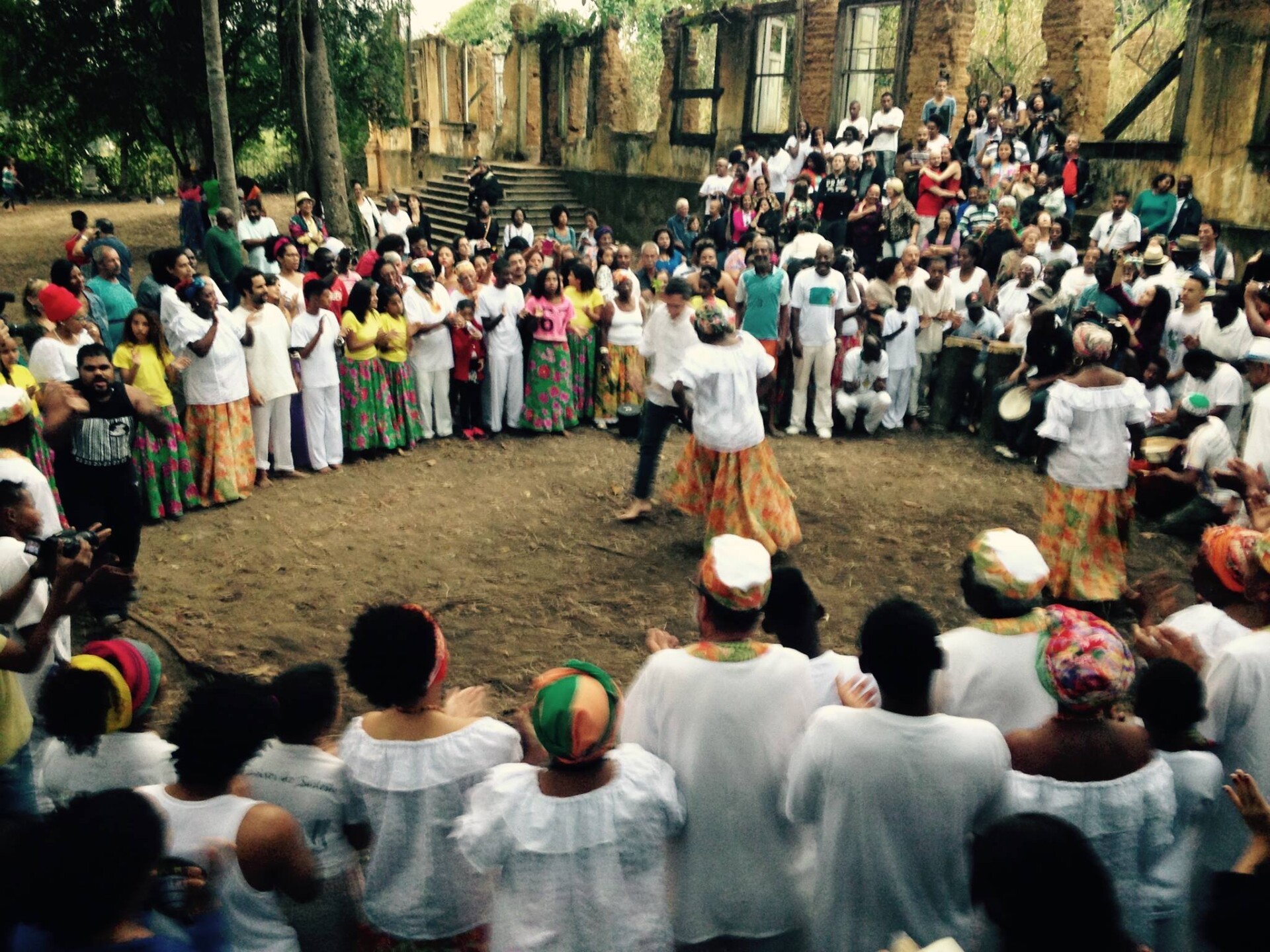By Tanure Ojaide.
The challenges that exist in capoeira and in Brazilian popular culture fit into a larger African tradition of battles of insults and performances. The book organized by Nigerian poet Tanure Ojaide tries to establish the uniqueness of this performative tradition in Africa and its diaspora. Here are excerpts from his introduction to the book African Battle Traditions of Insult. Verbal Arts, Song-Poetry, and Performance, published by Palgrave Macmillan, 2023.
African Battle Traditions of Insult. Verbal Arts, Song-Poetry, and Performance published by Palgrave Macmillan, 2023.
A major characteristic therefore of this tradition is a formally or informally arranged schedule of song-poetry performance in which one side has its turn and the other side watches and listens and then the roles are reversed the next time.
One can infer from the openness of the performance with known provokers or challengers as a mark of boldness that is related to masculinity as practiced in such societies. Udje, Halo, Capoeira, the Dozens, and Battle Rap seem to be used to express masculinity in their respective societies. [Nothing is hidden or taken as personal as such but seen as a communal or social responsibility to attack and be attacked with satiric songs.] It is a utilitarian artistic genre with moral and ethical objectives to not only deter folks from breaking established socio-cultural codes but also maintaining normalcy in society where deviants could cause disharmony and chaos.
As a result of listening to insults against oneself or one’s side, one is provoked to compose another song or songs to respond or retaliate to so hurt the other person or side as to deter from further verbal assaults. Thus, many songs are responses to earlier provocations in songs and this cycle goes on and on till one side springs a surprise that becomes the beginning of another thread of songs. The tradition has at its roots a dialogic tendency of responding to the latest insult, verbal abuse, or song which itself elicits further responses. So the tradition is self-growing as each song takes off from or builds upon an earlier song as the Urhobo, Ewe, Swahili, and Trinidadian/Caribbean, and Afro-Brazilian song-poems testify.
Summary of the book
The essays in this book thus delineate the battle traditions of insult through verbal arts, songs/poetry, and performance from their presence in Africa, especially the Udje and Halo of the Urhobo and Ewe respectively and other African variants, their transportation to the Americas and the Caribbean region during the slave trade period, and their modern and contemporary manifestations as Battle Rap, Yabis, or other forms of popular music in Africa. Almost everywhere there are contemporary manifestations of the more traditional older genres. The study affirms the vast geography of a diaspora in its dispersion of the Mother Continent’s cultural practices to other lands far away. In this case, the United States, Trinidad and Tobago, Cuba, and Brazil, among others, are new lands in the practice of these artistic confrontational contests. It is instructive to know from this study that cultural practices do not only move from the Mother Continent into the diaspora but transformations and syncretizations of these artistic practices also go back from the diaspora to Africa and back again to the diaspora.
The essays will reveal that these performances enable not just a sense of group solidarity but also a sense of individual and community competition. Having a sense of belonging and a competitive spirit are important values to the African.
So, what is glaring about the battle tradition of insults through verbal exchange, song-poetry composition, and performance of Africa and the African diaspora is one cultural phenomenon undergoing varieties of transformations and drawing on new realities and experiences to be defined for what it is—a battle of poetry/songs and performance of the African world. And, as will be expected, what are the ongoing new forms of these traditional artistic forms? There is no doubt that a diaspora involves carried-over practices that entrench the cultural identity of its people and this artistic tradition of songs and performance does that for Africa and its diaspora.
Both Halo and Udje, from their respective histories, trace the origin of the artistic battle traditions to social and human efforts to channel their anger, rivalry, competitiveness, and hostilities from the physical to the artistic. Instead of rivalry to be exhibited physically, they surmised it would be better done artistically. The sparring of partners through the resources of the imagination ennobles the two sides in their pursuit of artistic excellence and entertainment. Which of the parties is more quick-witted, poetic, humorous, and performative? The audience always seems to know the rules of the artistic practice and adjudges one side winner of the two-side contest.
The objectives of the founders of this tradition is to use it as a peace-building mechanism to manage the many conflicts that beset them at various levels of social habitation such as individual personalities, quarters of the same town, villages, and even towns. Thus, the tradition is a conflict resolution and peace maintenance mechanism because without it there would be a lot of physical conflicts that undermine the stability and peace of society. In the infinite wisdom of the old in traditional African societies, they devised a means to avoid bloodshed which had depleted many of their communities and worsened the chaotic state during the slave-raiding period for an agreed-upon novel way of settling scores—not by physical fighting but verbal/poetic shots that would bring out the best in their imagination, entertain them, and, in fact, bring them together on occasions, and laugh at each other, and reflect on their own lives. Masculinity was no longer a macho thing of physical prowess of fighting or wrestling, violent undertakings, but an artistic contest of the most imaginative, poetic, witty, humorous, and artistically superior.
Similarly, the battle traditions of insult in the diaspora play a role in the societies. For example, the Dozens is a rite of passage for young blacks. “The Dozens trains a participant in the art of self-control; to remain calm and unfazed when a form of violence is being enacted upon you. Participants learn the value of self-respect and self-love; they learn the value of a sharp mind in order to defend themselves as well as how to disguise their vulnerability and insecurities. The engagement in the verbal game readies the participants to the experiences that are inherent in the oppressive society in which they live.” The Greek Step Show, Calypso, and Jongo also teach discipline and self-control in the face of pressure.
For peace to be kept the founding fathers (and mothers) knew that the people, community, and audience must gain something to make turning away from violence worth it. The artistic verbal arts are almost always couched in laughter. As the Urhobo say, laughter is “sweet”. The practitioners of these artistic battles expect intellectual and physical forms of delight in the witty and poetic verbal arts and also their sheer humor. Wit and humor are thus essential parts of the tradition. After each performance, the audience/spectators share their responses to the beauty and wit of the songs and performance. They relish the images and stunning tropes deployed to sing about a person. Highly imaginative metaphors are used to describe opponents to elicit laughter in these insults especially in Udje, the Dozens, Jongo, Calypso, and Yabis. As already noted, there is fabrication of materials to meet the demand for humor. A performance of these battle arts without humor is dubbed a failure. It is not surprising about the stretch of facts and the imagination in Calypso, Udje, Halo, the Dozens, and Capoeira and Jongo to deploy so much that would make the audience or spectators to burst out laughing. No wonder, too, many of these practices take place during festivals when folks are expected to be relaxing and having holidays. Laughter, after all, is a good communal medicine to avert physical and violent confrontations.
.
A lot of mediations have entered these battle traditions of verbal arts, song-poetry, and performance. As would be expected of diasporic traditions, diverse experiences of history, geography, environment, social adaptations, and innovations have diversified the unique African tradition. Even within the African homeland, colonialism, modernity, and globalization have transformed things to change within the indigenous languages and local settings of verbal and artistic practices. These transformations are foregrounded in foreign languages such as English and Portuguese. In the diaspora, many languages used by blacks are creole or patois and so bear Africanisms especially of Bantu languages and terms in the European languages.
This unique tradition that exists in Africa and its diaspora in various forms affirms artistic excellence in the verbal arts, poetry, song, and performance. Its practice raises the stakes in its competitive nature to always heighten the tempo. In that way, there is increasing intensity as each side sharpens its wit for maximum impact of attack and counter-attack. The objective of each rival side’s words is to either wound the opponent’s psyche or ego or provoke and challenge so brazenly to elicit a sharp hostile response. Duels such as between Ekakpamre rivals and also between Oloya of Iwhrekan and Memerume of Edjophe in the Udje practice show the dialogic nature of this artistic practice. The same nature of combative rivalry is exhibited among the Anlo and Aja Ewe people of Ghana, Togo, and Benin. The composers of the poems or verbal forays are insistent on not using the same images twice but always keeping their words fresh, poetic, and memorable.
There is an enduring contemporaneity to this tradition of insults. What is significant is using artistic, verbal, and performance resources of the past to address contemporary challenges. Writers integrate these traditions into their artistic works to give a cultural identity from subtle to more brazen patterns.
After this introductory chapter about the nature, pattern, and significance of the battle traditions of insult in the African Atlantic world, there are three broad sections: African Origins, Diasporic Manifestations, and New Transformations and the Circularity of Diasporic Traditions. About five essays/chapters focus on each section to elucidate the totality of that phase or pattern of verbal arts, song-poetry, and performance. The African Origins consist of Urhobo Udje, Ewe Halo, rivalries in polygamous Yoruba households, Swahili Malumbano, and Shona traditions of abuse. The section on Diasporic Manifestations deals with the Dozens, Greek Step Show, Battle Rap, Jongo, and Calypso. The third part of the book shines light on further new manifestations of the African and diasporic traditions in the global era. This part deals with “New Transformations of Diasporic Traditions.” These new transformations include Yabis, Tanzanian Bongo fleva, and the recuperation and reconfiguration of the battle traditions of verbal arts, song-poetry, and performance in modern literature. The essays in this section affirm their African predecessors to which they owe much in style. However, the respective environments in the diaspora establish their role and mode of composition and performance]. The case of African-Americans using the Dozens and Battle Rap to overcome the stress of the racist capitalist system of the United States is an example of the adaptability of each manifestation of the tradition in the so-called New World.
All the chapters form a cohesive statement about this African tradition and its spread to the diaspora. Historically these traditions started at different times and different places but later time and space are shrunk as the current phenomenon of global hip-hop which appears in localized versions but remain authentically African and whose roots go deep into pre-slave trade and precolonial times through slavery, colonialism, up to the present. The changes will continue to go on in the tradition and one cannot predict what it will look like as artists and people all over the world embrace its composition and practice.
The battle tradition grants democratic space to all actors to respond—talk back on social media. Many of these traditions are steeped in indigenous knowledge from which they derive their values, significance, and contemporaneity. The fact that many African societies set up this arrangement of song-poetry contests to avert conflict and maintain peace in the community is a laudable practice. One could imagine if many street gangs of today, as in many cities in Africa and the United States, were to accept to “battle” without guns, so many lives would be saved every day, week, month, and year. This peace mechanism should be studied by NGOs worldwide dealing with conflicts within nations and gang fights within and between streets.
Also the emphasis on sharp imagination and humor in the verbal arts, whether of riddles/Jongo, the Dozens, Battle Rap, Udje, or others, is an intellectual development that shows how words have psychological and mystical power in human existence. The use of proverbs and highly/13/
imaginative metaphors and riddles represents the archivation of African traditional knowledge and wisdom. So much is embedded in these traditions that this book presents.
This project relives cultural Pan-Africanism. People of Africa and the diaspora have a unifying culture wherever they might be now in these battles of poetry and wit. these cultural practices bring black peoples together, and can help to mend the contemporary rift between groups of Africa-descended folks.
Above all, these works of battle poetry earn a big place in world cultural contributions. Udje, Halo, Malumbano, Battle Rap, Calypso, and Jongo, among so many others, are living testaments of arts and culture that are black contributions to world popular culture. It is a genre in multifarious variants that UNESCO should help map out in digital form not to lose one of the most vibrant genres that Africa, its diaspora, and humans have ever created—artistic battle for excellence. This is compelling as there are newer forms in written forms of the once oral-only battle warfare of poetry and its performance. Life is competitive and the drive to outperform others in an artistic tradition which does not carry the physical consequences of its content is marvelous.
Tanure Ojaide is the Frank Porter Graham Professor of African Studies at the University of North Carolina at Charlotte, USA. Educated in Ibadan and Syracuse, Tanure Ojaide has published twenty-one collections of poetry, as well as novels, short stories, memoirs and academic works.
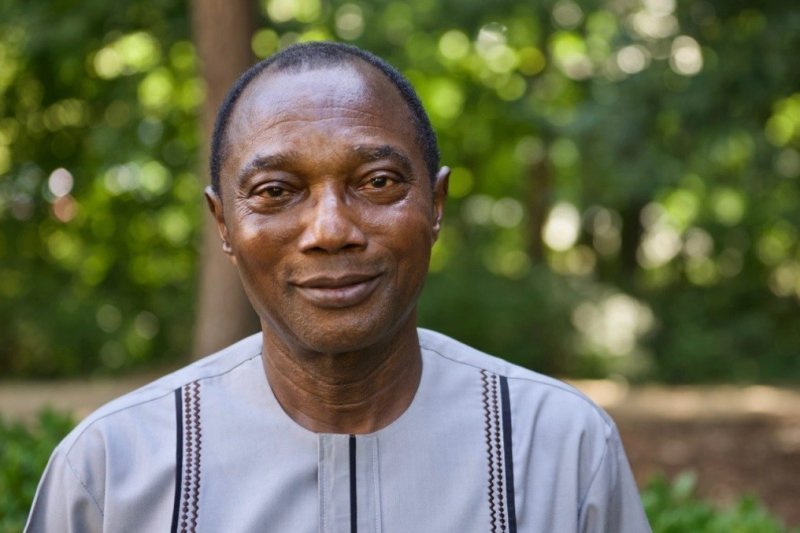
He has won the Association of Nigerian Authors Poetry Prize four times: 1988, 1994, 2003 and 2011. His other awards include the Commonwealth Poetry Prize for the Africa Region, the All-Africa Okigbo Poetry Prize and the BBC Arts and Africa Poetry Prize. In 2016 he won both the African Literature Association’s Fonlon-Nichols Award for Excellence in Writing and the Nigerian National Order of Merit Award for the Humanities. In 2018, he was co-winner of the Soyinka Prize for Literature in Africa. He has won the National Endowment for the Arts grant, twice the Fulbright grant and twice the Carnegie African Diaspora Program grant.
Works Cited and References
Akinyemi, Akintunde and Toyin Falola, eds. The Palgrave Handbook of African Oral Traditions and Folklore. London and New York: Palgrave, 2021.
Bowen, John R., ‘Poetic Duels and Political Change in the Gayo Highlands of Sumatra’, American Anthropologist 91: 1, March 1989, 25–40.
Bruhn, John G. and James L. Murray. “‘Playing the dozens’: Its history and psychological significance.” Psychological reports 56.2 (1985): 483–494.
Curtin, Philip D. African History: From Earliest Times to Independence. London: Longman, 1995.
Dollard, John. “The Dozens: Dialectics of Insult.” American Imago; a Psychoanalytic Journal for the Arts and Sciences, vol. 1, no. 1, 1939, ProQuest, https://www.proquest.com/scholarly-journals/dozens- dialectics- insult/docview/1289738766/se-2?accountid=14605.
Gallant, Thomas W., ‘Honor, Masculinity, and Ritual Knife Fighting in Nineteenth-Century Greece’, American Historical Review 105: 2, April 2000, 359–82.
Gilroy, Paul. The Black Atlantic: Modernity and Double Consciousness. Cambridge, MA: Harvard University Press, 1993.
Saloy, Mona Lisa. “African American oral traditions in Louisiana.” Folklife in Louisiana (1998).
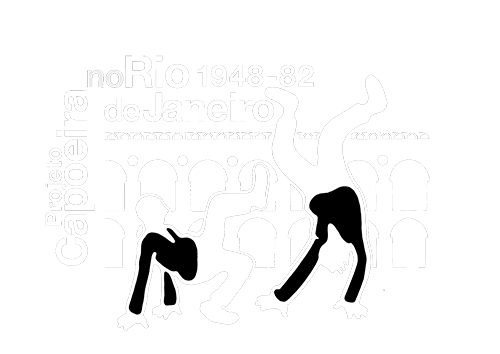
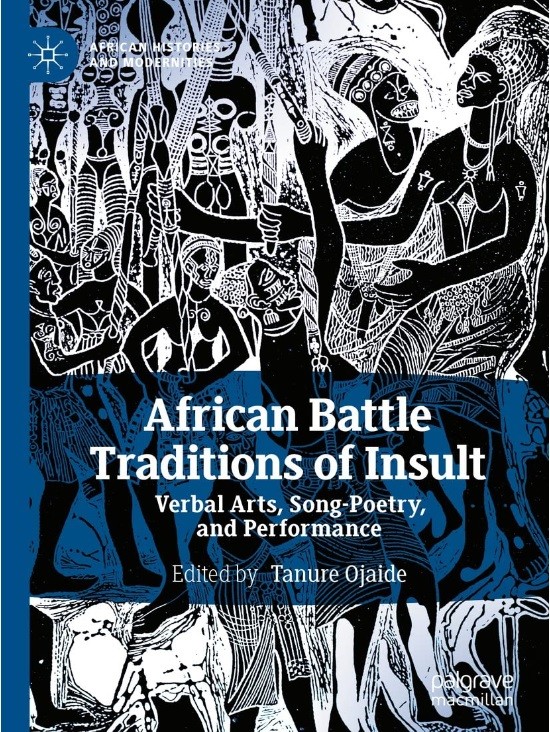
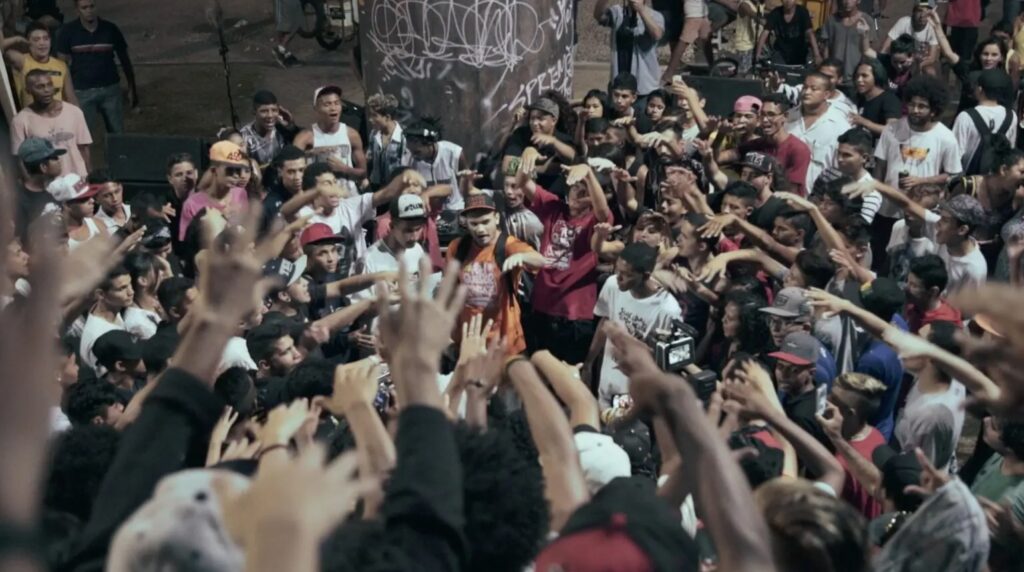
![São José Calango [2007 02 14]](https://capoeirahistory.com/wp-content/uploads/2024/03/xSao-Jose_Calango-2007-02-14.jpg.pagespeed.ic.Okqs4CMYNp.jpg)
![Bracuhy Jongo [2007 01 27]](https://capoeirahistory.com/wp-content/uploads/2024/03/Bracuhy_Jongo-2007-01-27.jpeg)
